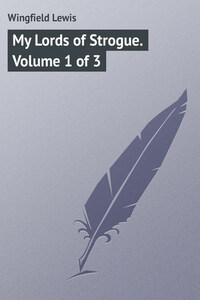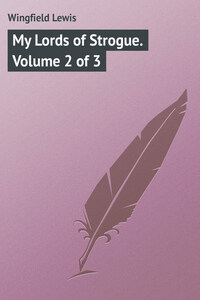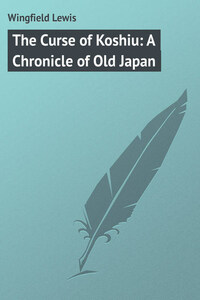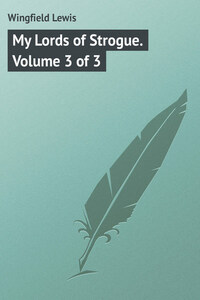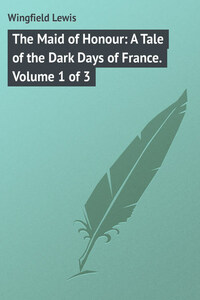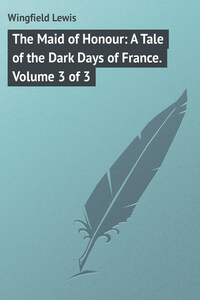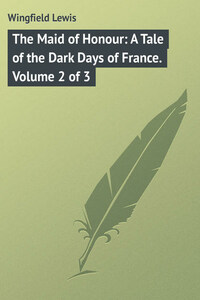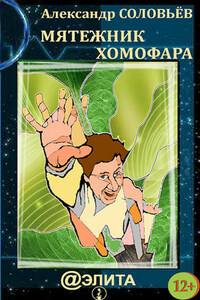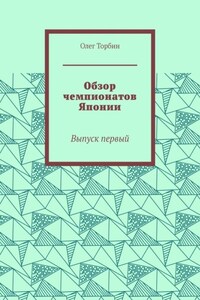'Hurrah! 'tis done-our freedom's won-hurrah for the Volunteers!
By arms we've got the rights we sought through long and wretched years.
Remember still through good and ill how vain were prayers and tears-
How vain were words till flashed the swords of the Irish Volunteers.'
So sang all Dublin in a delirium of triumph on the 9th of November, 1783. From the dawn of day joy-bells had rung jocund peals; rich tapestries and silken folds of green and orange had swayed from every balcony; citizens in military garb, with green cockades, had silently clasped one another's hands as they met in the street. There was no need for speech. One thought engrossed every mind; one common sacrifice of thanksgiving rolled up to heaven. For Ireland had fought her bloodless fight, had shaken off the yoke of England, and was free-at last!
The capital was crowded with armed men and bravely-bedizened dames. Carriages, gay with emblazoned panels, blocked up the narrow thoroughfares, darkened to twilight-pitch by the boughs and garlands that festooned the overhanging eaves. Noddies and whiskies and sedans, bedecked with wreaths and ribbons, jostled one another into the gutter. Troops of horse, splendidly accoutred-officers mounted upon noble hunters-clattered hither and thither, crushing country folk against mire-stained walls and tattered booths, where victuals were dispensed, without so much as a 'By your leave.' Strangers, arrived but now from across Channel, marvelled at the spectacle, as they marked the signs of widespread luxury-the strange mingling of the pomp and circumstance of war with the panoply of peace-the palaces-the gorgeously-attired ladies in semi-martial garb, swinging up and down Dame Street in gilded chairs between the Castle and the Senate House, and back again-dressed, some of them, in broidered uniforms, some in rich satin and brocade. Sure the homely court of Farmer George in London could not compare in splendour, or in female beauty either, with that of his Viceroy here.
A stranger could perceive at once that some important ceremony was afoot, for all along the leading streets long galleries had been erected, decorated each with sumptuous hangings, crowded since daybreak with a living burthen; while every window showed its freight of faces, every row of housetops its sea of heads. From the Castle to Trinity College (where a huge green banner waved) the road was lined with troops in brand-new uniforms of every cut and colour-scarlet edged with black, blue lined with buff, white turned up with red, black piped with grey; while the stately colonnades of the Parliament House over against the College were guarded by the Barristers' Grenadiers, a picked body of stalwart fellows who looked in their tall caps like giants, with muskets slung and bright battle-axes on their shoulders. King William's effigy, emblem of bitter feuds, was in gala attire to-day, as if to suggest that rival creeds were met for once in amity. Newly painted white, the Protestant joss towered above the crowd, draped in an orange cloak, crowned with orange lilies; while his horse was muffled thick with orange scarves and streamers, and wore a huge collar of white ribbons tied about his neck. Placards inscribed with legends in large characters were suspended from the pedestal to remind the cits for what they were rejoicing. 'A Glorious Revolution!' 'A Free Country!' One bigger than the rest swung in the breeze, announcing to the few who as yet knew it not, that 'The Volunteers, having overturned a cadaverous Repeal, will now effectuate a Real Representation of the People!' Yes. That was why Dublin was come out into the streets. The victorious Volunteers had untied the Irish Ixion from a torture-wheel of centuries, and, encouraged by their first success, were preparing now to pass a stern judgment on a venal parliament.
From the period of her annexation to England in the twelfth century, down to the close of the seventeenth, Ireland had been barbarous and restless; too feeble and disunited to shake off her shackles, too proud and too exasperated to despair, alternating in dreary sequence between wild exertions of delirious strength and the troubled sleep of exhausted fury. But that was over now. The chain was snapped; and the first vengeance of the sons who had freed her was to be poured on the senate who were pensioners of Britain; who had sold their conscience for a price, their honour for a wage. A grand Convention was to be opened this day at the Rotunda, from which special delegates would be despatched to Lords and Commons, demanding in the name of Ireland an account of a neglected stewardship. No wonder that the populace, dazzled by an unexpected triumph, were come out with joy to see the sight. Light-hearted, despite their sorrows, the Irish are only too ready to be jubilant. But there were some looking down from out the windows who shook their heads in doubt. The scene was bright, though the November day was overcast-pretty and picturesque, vastly engaging to the eye. So also is a skull wreathed with flowers, provided that the blossoms are strewn with lavish hand. These croakers were fain to admit that the Volunteers had done wonders. The prestige of victory was theirs. Yet is it a task hedged round with peril-the wholesale upsetting of powers that be. It was not likely that England would tamely give up her prey. She was ready to take advantage of a slip. Ireland had cause to be aware of this; but Ireland thought fit to forget it. A fig for England! she was a turnip-spectre illumined by a rushlight. A new era was dawning. Even the schisms of party-bigotry had yielded for a moment to the common weal. Catholics and Protestants had exchanged the kiss of Judas; and Dublin resigned herself to sottish conviviality.
